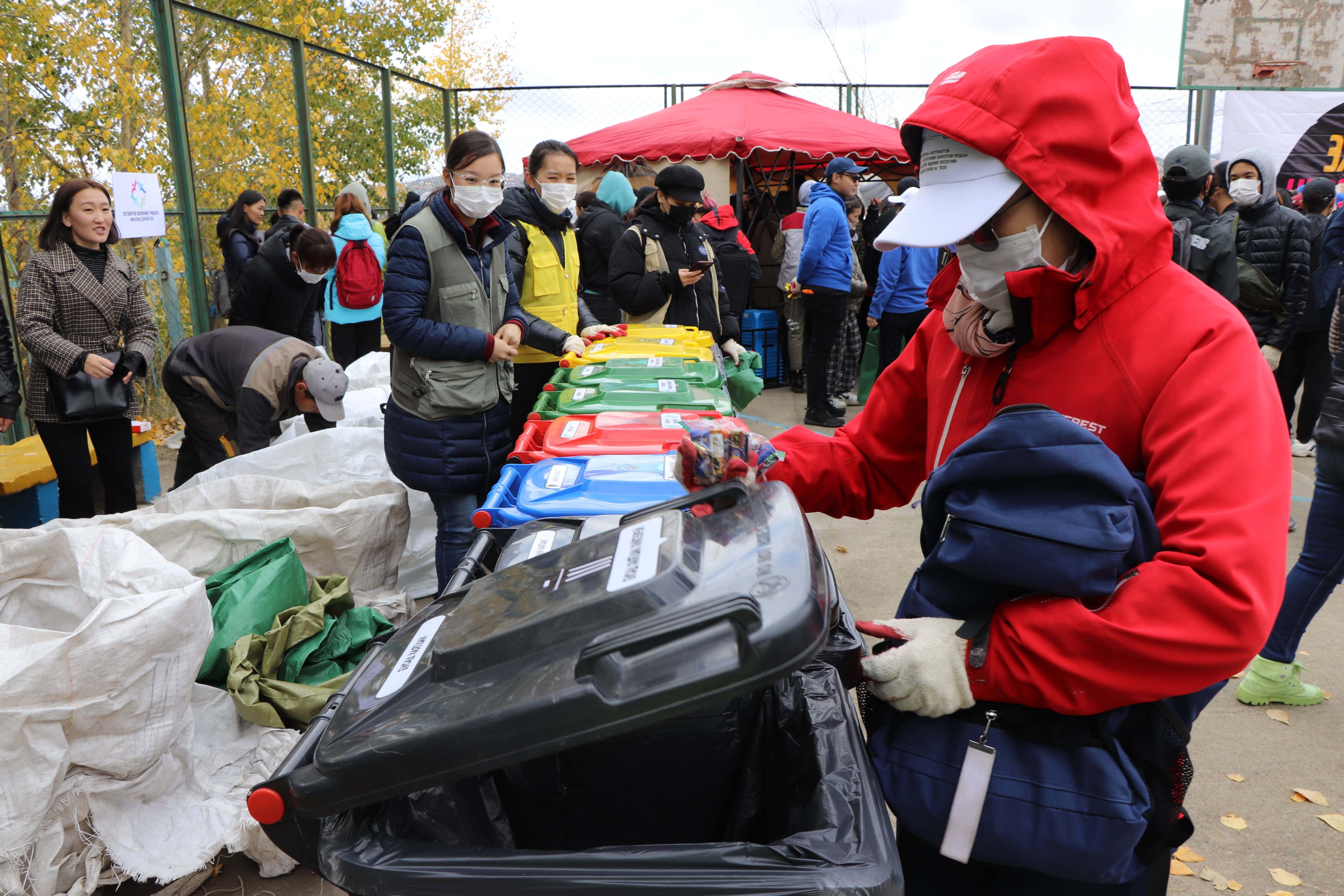
The Sustainable Plastic Recycling in Mongolia (SPRIM) project is uniting communities to confront the escalating plastic crisis, threatening the iconic landscapes of Mongolia. Traditionally associated with untouched natural beauty, Mongolia's environment is now compromised by plastic waste, manifesting as discarded soda bottles and plastic bags in natural settings, symbolizing a broader environmental issue. With Mongolia lacking a centralized recycling system, the majority of recyclable waste, over 90%, is consigned to landfills, placing the country among the world's top per capita producers of plastic waste. This situation demands urgently sustainable waste management solutions.
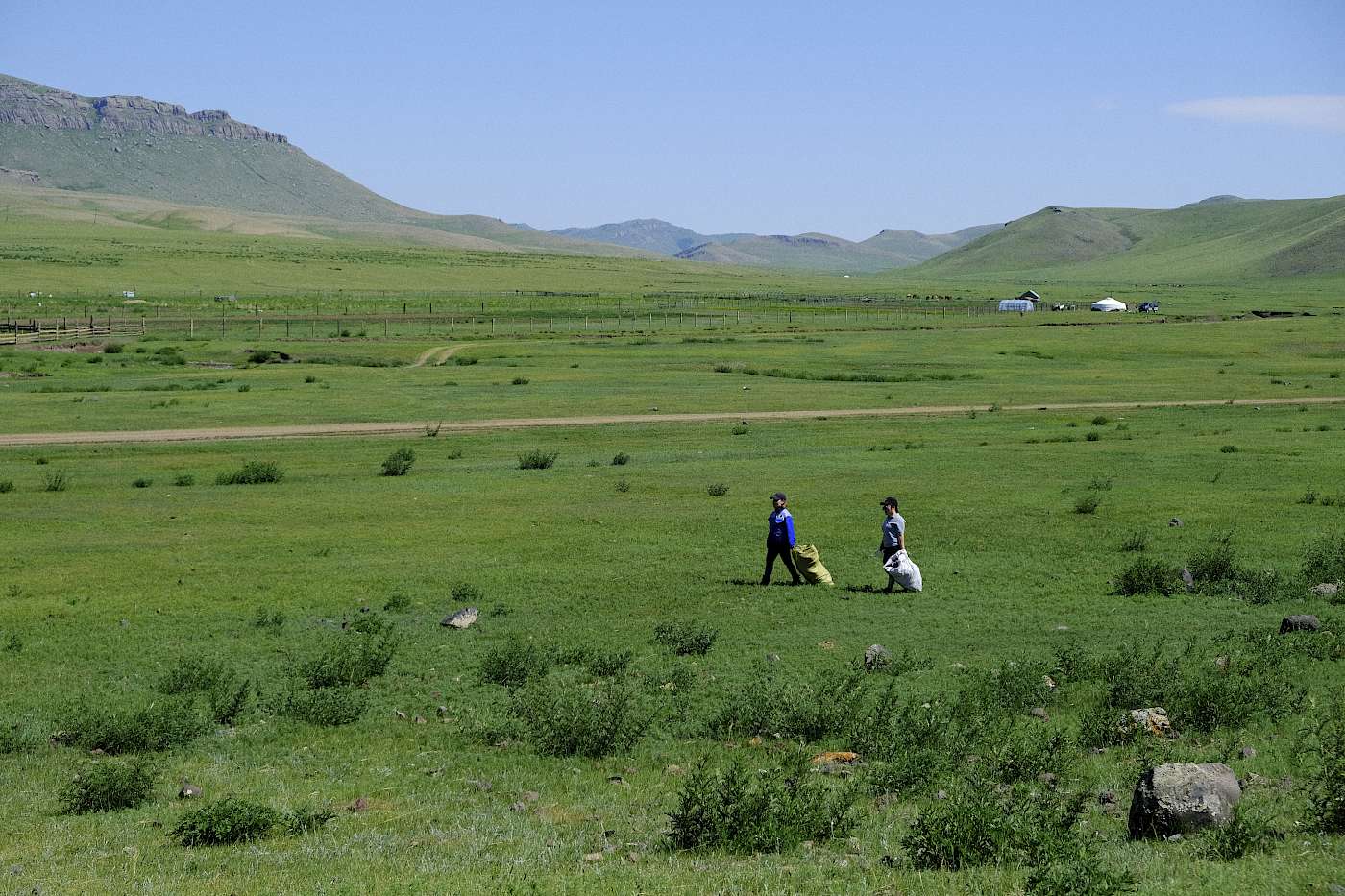
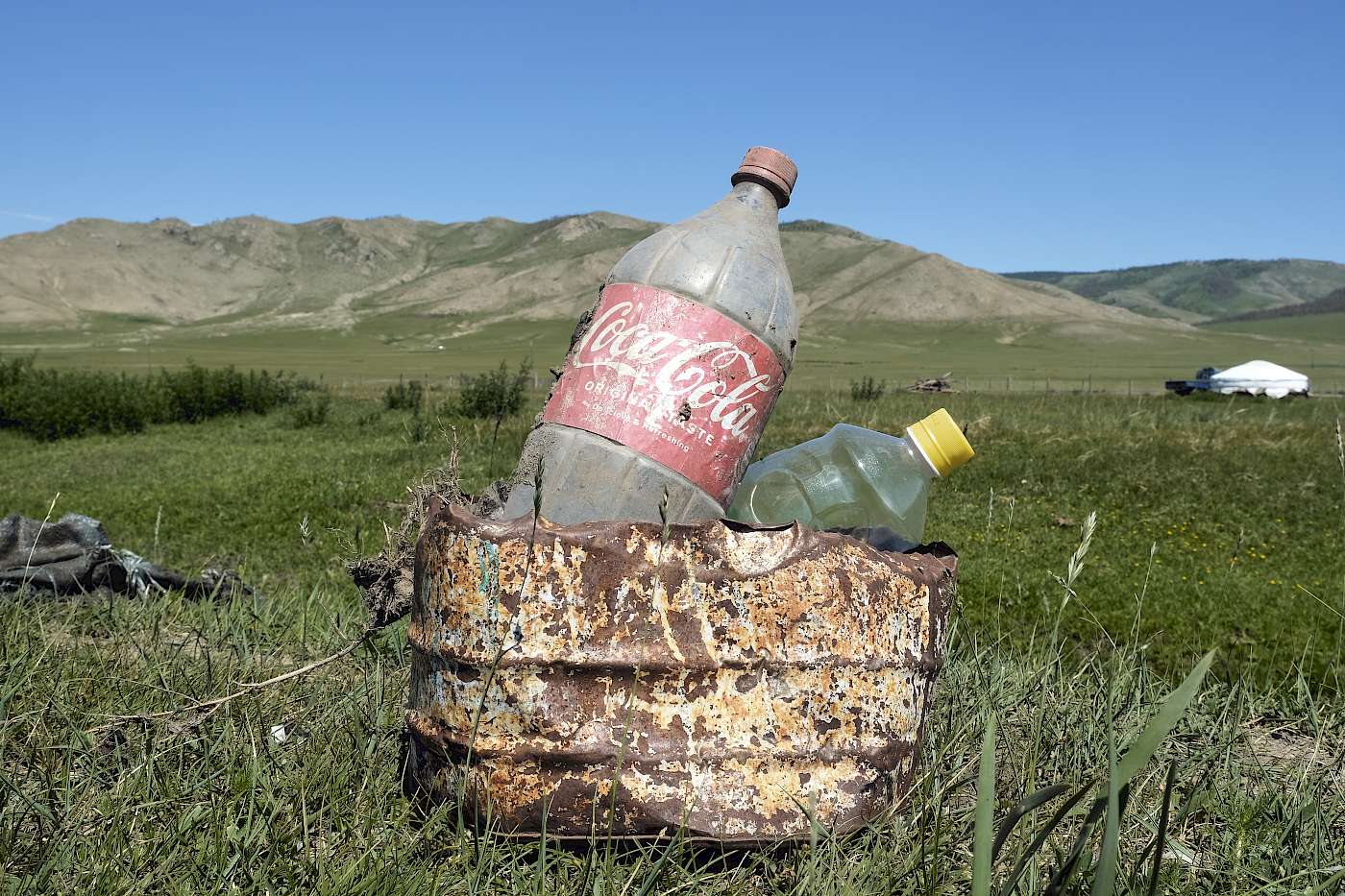
The SPRIM project, funded by the European Union through its SWITCH-Asia programme, represents a collaborative endeavour spanning four years, implemented by Caritas Czech Republic, the Environment and Security Center of Mongolia, Ecosoum, the Water Research Institute, and the Mongolian Sustainable Development Bridge. These entities have collectively worked towards educating communities and businesses, addressing recycling industry challenges, innovating with recycled products, and fostering a supportive policy environment for recycling. As the project enters its concluding year, reflection on the collective achievements and the sustainable legacy it aims to establish in Mongolia's recycling sector is pertinent.
From its inception, the project has forged connections with community leaders, recycling companies, researchers, and government officials, fostering a unified approach towards sustainable circular economy practices. The project's influence is evident across various scales within Mongolia. Nationally, collaboration with The Mongolian Agency for Standardization and Metrology has aimed at adopting international recycling standards, aligning with industry partners' aspirations for best practice in environmental and worker safety standards. Moreover, the project has facilitated the review of the 2017 Law on Waste, identifying opportunities for sustainability and policy enhancement.
Furthermore, the organization of a study tour to the Czech Republic and Germany, allowed key Mongolian recycling and government representatives to observe best practices in waste management and policy implementation. This exposure has inspired calls for improved government-industry collaboration and the development of efficient waste management systems in Mongolia.
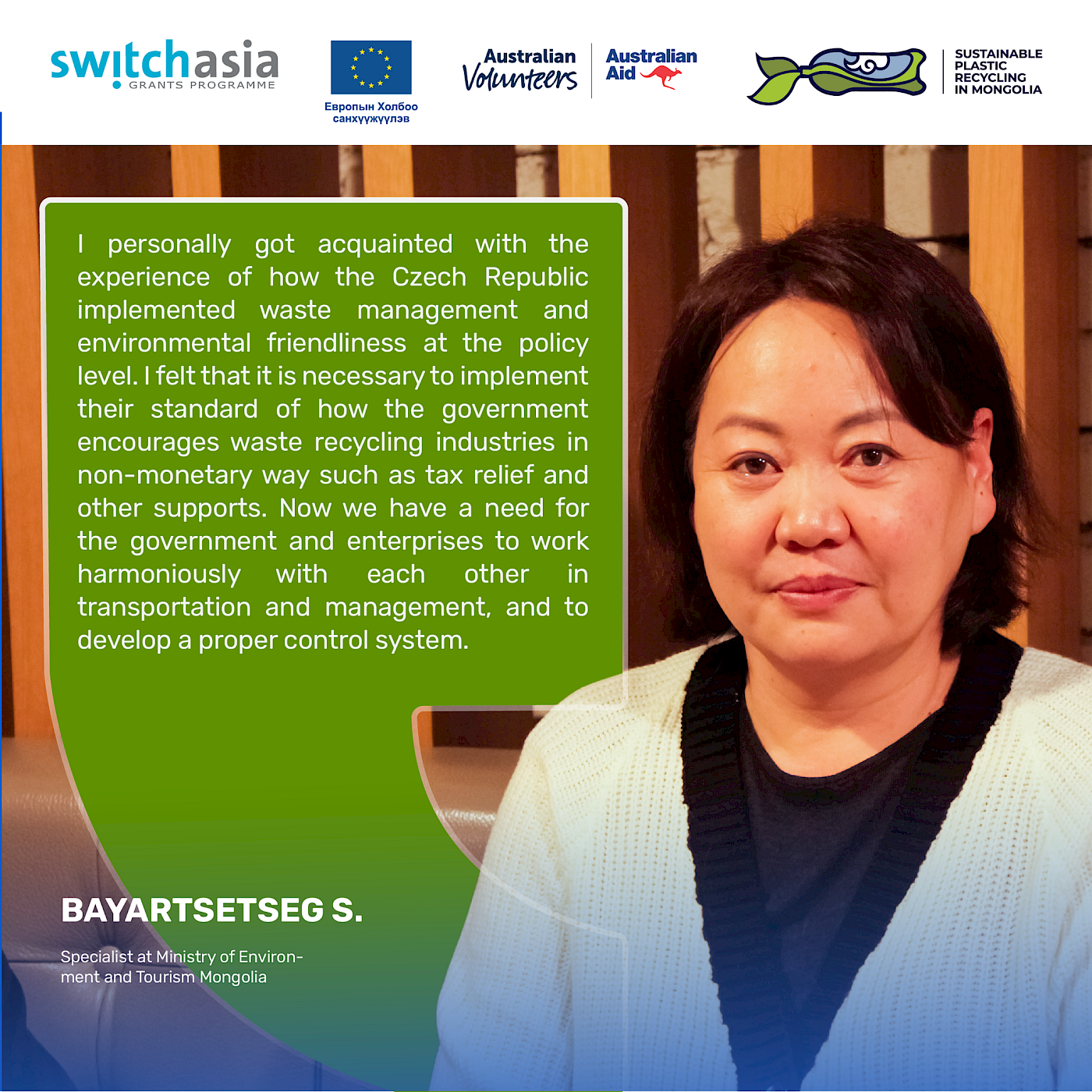
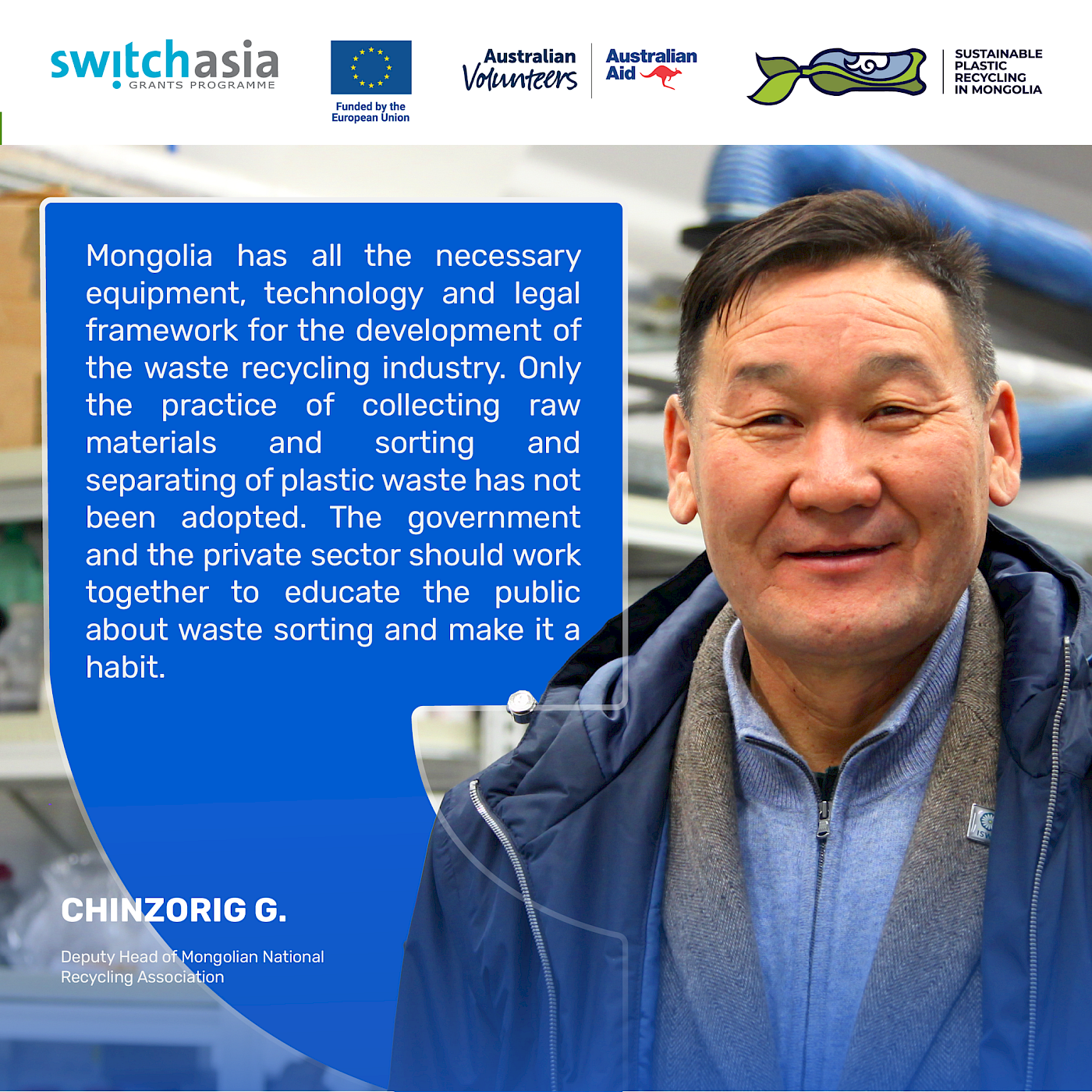
At the city level, in Ulaanbaatar, the project has successfully piloted district-scale recycling collection initiatives in partnership with local government, marking a first for Mongolia. In rural settings, such as the village of Khishig-Undur, the project has established one of the country's initial waste sorting facilities outside the capital, providing residents with waste sorting bins and training, thereby enhancing local waste management practices.
Looking ahead to 2024, the project is set to disseminate the accumulated knowledge and best practices nationwide. This includes the launch of a comprehensive recycling facility database and a user-friendly app to facilitate waste sorting and recycling, making this information accessible for the first time. Furthermore, the successful waste sorting initiatives in Ulaanbaatar and Khishig-Undur will serve as models for replication in other districts and villages, supported by detailed guides.
Over the past four years, the project has built a diverse network of sustainability advocates spanning communities, industries, academia, and government. This network will evolve into a self-managed knowledge cluster, poised to drive strategic sustainability initiatives in the future.
Reflecting on the impact we've witnessed among our target beneficiaries, amidst every challenge lies an opportunity to inspire change. Through our collective efforts, we've not only played a role in transforming waste into valuable resources but also ignited a flame of hope for a greener, more sustainable future, said Sanchirgarav Batzorig, SPRIM Project Manager.
The SPRIM project represents a significant stride towards sustainable waste management in Mongolia, embodying a collaborative journey towards preserving Mongolia's natural heritage and facilitating the transition to a circular economy.
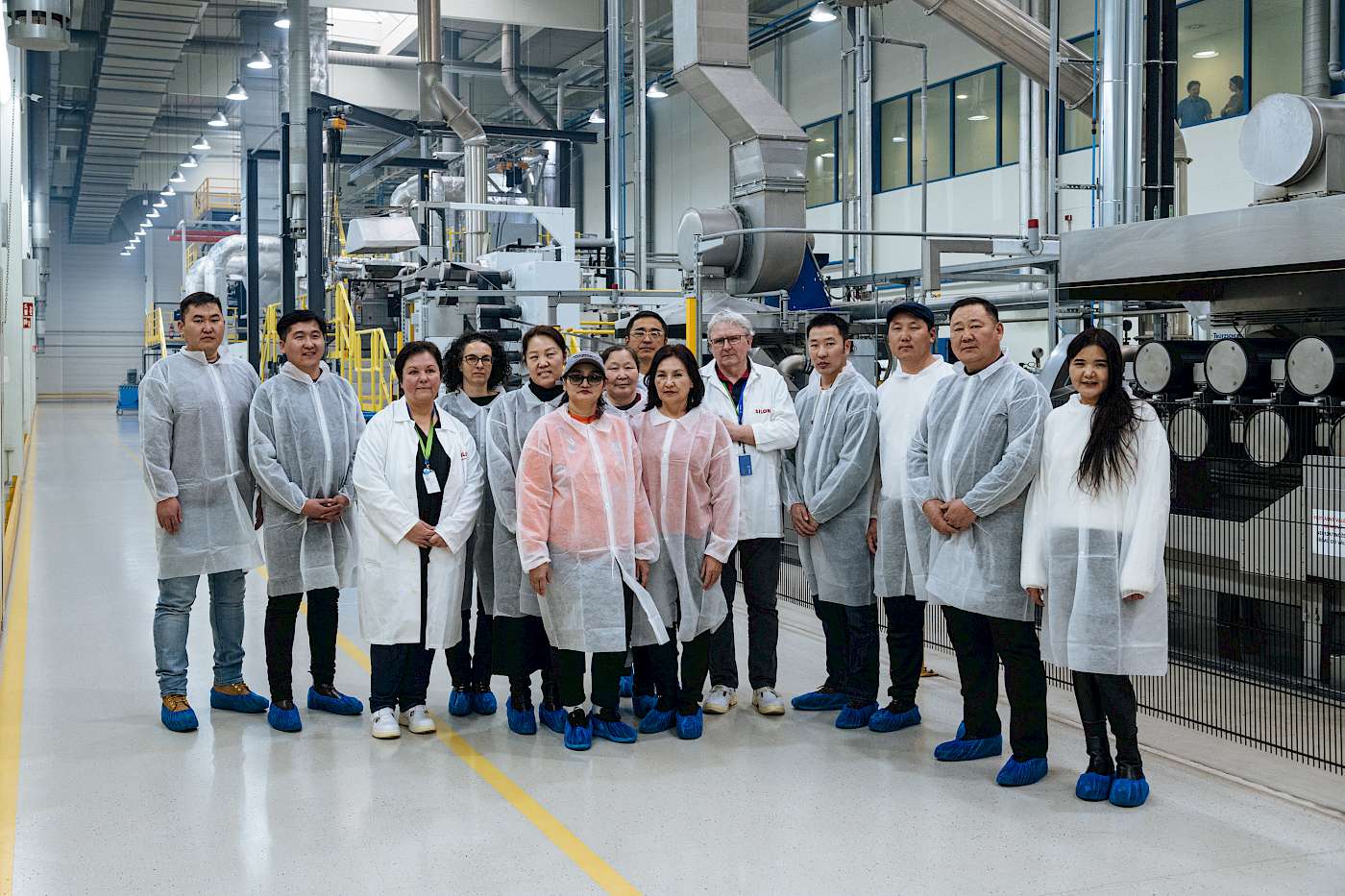
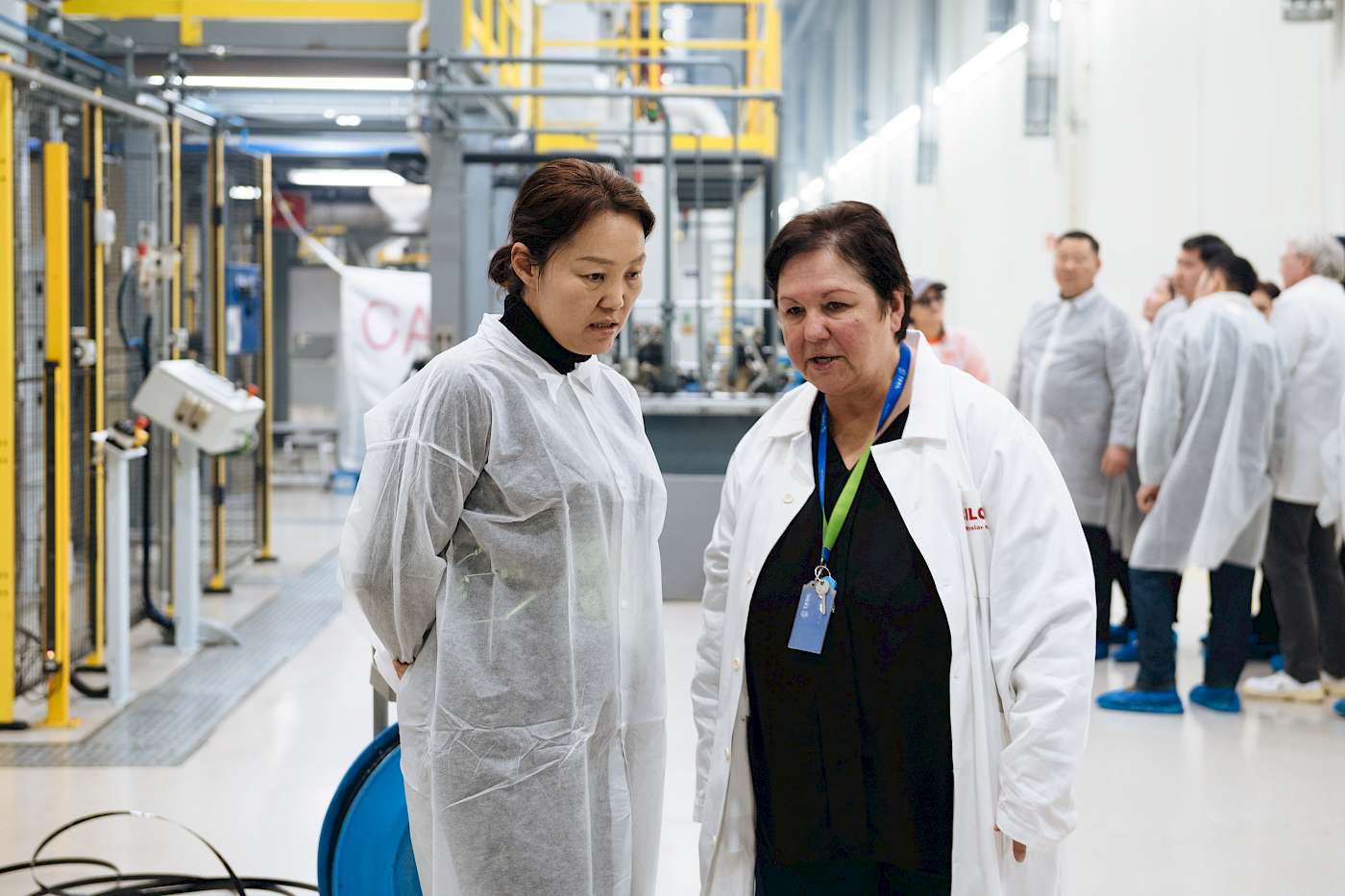
Photo credits: SWITCH-Asia Sustainable Plastic Recycling in Mongolia (SPRIM)


